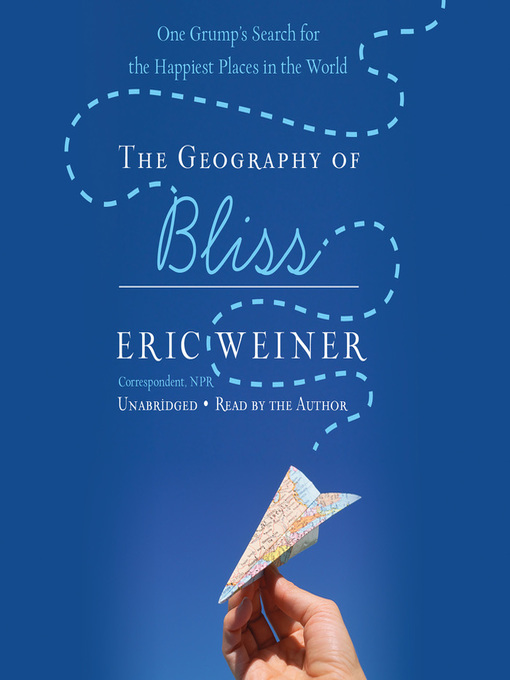
The Geography of Bliss
One Grump's Search for the Happiest Places in the World
کتاب های مرتبط
- اطلاعات
- نقد و بررسی
- دیدگاه کاربران
نقد و بررسی

Foreign journalist Eric Weiner, tired of bearing so much bad news for National Public Radio, visits 10 nations around the world to learn what makes their citizens happy. He's an appealing narrator--clear voiced and good natured--and he can tell a good story. The understated chumminess in his voice is a perfect vehicle for his wry observations, well-disguised self-deprecation, and ultra-smooth writing skills. Weiner's stories and observations warm the heart but also deliver a satisfying supply of his abundant wit, big-city perspective, and generous appreciation of the human condition. More literary than scientific and free from any pretense of inspiration, this production offers time well spent with a nuanced thinker and a relaxing account of the large and small experiences that make people everywhere so interesting. T.W. Winner of AudioFile Earphones Award (c) AudioFile 2009, Portland, Maine

Starred review from October 22, 2007
Fortified with Eeyoreish fatalism—“I’m already unhappy. I have nothing to lose”—Weiner set out on a yearlong quest to find the world’s “unheralded happy places.” Having worked for years as an NPR foreign correspondent, he’d gone to many obscure spots, but usually to report bad news or terrible tragedies. Now he’d travel to countries like Iceland, Bhutan, Qatar, Holland, Switzerland, Thailand and India to try to figure out why residents tell “positive psychology” researchers that they’re actually quite happy. At his first stop, Rotterdam’s World Database of Happiness, Weiner is confronted with a few inconvenient truths. Contrary to expectations, neither greater social equality nor greater cultural diversity is associated with greater happiness. Iceland and Denmark are very homogeneous, but very happy; Qatar is extremely wealthy, but Weiner, at least, found it rather depressing. He wasn’t too fond of the Swiss, either, uncomfortable with their “quiet satisfaction, tinged with just a trace of smugness.” In the end, he realized happiness isn’t about economics or geography. Maybe it’s not even personal so much as “relational.” In the end, Weiner’s travel tales—eating rotten shark meat in Iceland, smoking hashish in Rotterdam, trying to meditate at an Indian ashram—provide great happiness for his readers.

December 1, 2007
A self-proclaimed grump, Weiner has spent a decade as a foreign correspondent for National Public Radio, giving him ample opportunity to view the human condition around the world. Intrigued by the ingredients for bliss, he consulted with a Dutch professor of happiness studies, who set him off on a journey to visit places known to havehappiness indexes. Iceland ranks because of its high tolerance for failure and Qatar for its extreme wealth. Weiner explores tranquility in Bhutan, the closest thing to Shangri-La, which has a government policy on Gross National Happiness. In Moldova, the former Soviet Republic in the miserable throes of recovery, he defines happiness as being elsewhere. In Britain, he finds a people put off by the American enthusiasm for happiness, and at home, he finds an endless pursuit of joy that evades us even as we are alone in status as a superpower. Grouchy or not, Weinerdisplays anopenness to other cultures and a huge sense of humor inthis absorbing, funny, and thoughtful look at notions of bliss.(Reprinted with permission of Booklist, copyright 2007, American Library Association.)

























دیدگاه کاربران